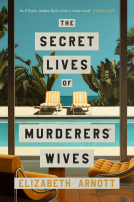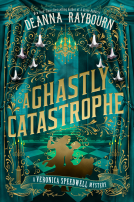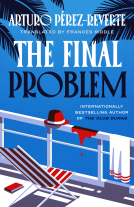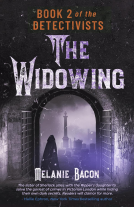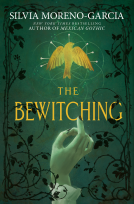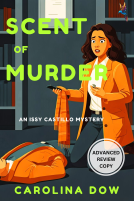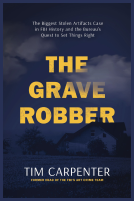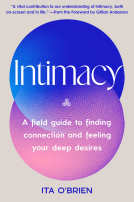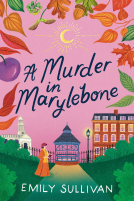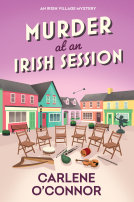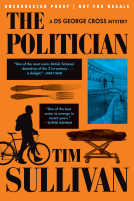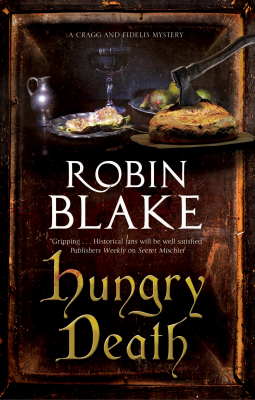
Hungry Death
by Robin Blake
This title was previously available on NetGalley and is now archived.
Send NetGalley books directly to your Kindle or Kindle app
1
To read on a Kindle or Kindle app, please add kindle@netgalley.com as an approved email address to receive files in your Amazon account. Click here for step-by-step instructions.
2
Also find your Kindle email address within your Amazon account, and enter it here.
Pub Date May 03 2022 | Archive Date Apr 30 2022
Talking about this book? Use #HungryDeath #NetGalley. More hashtag tips!
Description
When a blackened body is discovered buried beneath a hot-house, Coroner Titus Cragg uncovers a tale of scandalous secrets stretching back almost twenty years.
"Blake again demonstrates why he belongs in the first rank of historical mystery novelists" - Publishers Weekly Starred Review
Coroner Cragg. You think you can find out what happened at this house? You are mistaken. You can never find out."
November, 1747. County Coroner Titus Cragg has been called to the scene of a gruesome slaughter at a rural farmhouse: a mother and her four children brutally murdered in their own home. Were they killed by the man who should have protected them: their husband and father? And what role is played by the peculiar religious cult the family belongs to? Perhaps the mute boy who lives in the dog kennel knows the truth.
Meanwhile, Titus's friend Dr Luke Fidelis is a guest of wealthy landowner and local magistrate John Blackburne at nearby Orford Hall. When a blackened but well-preserved body is discovered deep beneath Blackburne's hot-house, Cragg and Fidelis are asked to investigate. But how can they make headway when, as they soon learn, this corpse might have been in the ground for centuries?
Gradually, Titus pieces together a tale of secrets, scandal and thwarted passion - and uncovers a shocking connection between the body under the hothouse and the slaughter in the farmhouse.
A Note From the Publisher
Available Editions
| EDITION | Other Format |
| ISBN | 9780727890719 |
| PRICE | $29.99 (USD) |
| PAGES | 288 |
Average rating from 27 members
Featured Reviews
In the 1700’s Titus Cragg is the County Coroner called to Warrington to the horrific deaths of a family. He follows clues to bring evidence to the local magistrate. We’re these murders part of witchcraft still believed to play a part in some local cults. Cragg is also given the peculiar mystery of a body found under the hot house of Magistrate Blackburne. Both these mysteries will find many twists and turns and the characters involved will connect with each other to an eye opening finish. This is a very well thought out mystery which also gives you the flavour of life for all involved in a Northern town of the time. The interest is kept well till the very end.
I was given an arc of this book by Netgalley and the publisher in exchange for an honest review.
 David P, Reviewer
David P, Reviewer
I have become a huge fan of the Cragg and Fidelis books written by Preston-born Robin Blake. They are set in the 1740s in Lancashire, Titus Cragg is the county coroner, and his friend Luke Fidelis is an enterprising and innovative young physician. Hungry Death is the eighth in this excellent series.
Cragg is instructed to ride out to a lonely moorland farmhouse, and what he finds surpasses any of the previous horrors his calling requires him to confront. He finds an entire family slaughtered, by whose hand he knows not, unless it was the husband of the house, himself hanging by a strap hooked over a beam. To add even more mystery to the grisly tableau, Cragg learns that the KIdd family were members of a bizarre dissenting cult which encourages its members into acts of brazen sexuality. Then, in a seemingly unconnected incident, the gardener at a nearby mansion, trying to improve the drainage under his hothouse, discovers another body. This corpse may have been in the ground for centuries, as it has been partly preserved by the peat in which it was buried. When Fidelis conducts an autopsy, however, he concludes that the body is that of a young woman, and was probably put in the ground within the last decade or so.
Bodies - dead ones - are central to Titus Cragg's world. A coroner, then and now, must try to be led, hand in hand, by the dead until the circumstances of their demise is revealed. Sometimes, through his investigations and observations, Cragg (helped by the medical eye of Fidelis) can make the dead talk, but the peat-blackened young woman seems to have little to say. Painstaking and shrewd deduction leads Cragg to believe that she was a servant girl once employed at one of the large households in the area. But who? The girls came and went, changed their names through marriage, and the passing years have cast a shroud of fog over the matter.
Regarding the slaughter at the farmhouse, Cragg discovers that the answer lies in the peculiar - and vengeful - nature of the Eatanswillian sect. I believe Robin Blake has used a little historical license here, as the only mention of the word online that I could find is that of the election in the fictional town of Eatanswill (described so satirically in The Pickwick Papers). The resolution of the case hinges on a note pinned to the door of the farmhouse, apparently written in some kind of code. Cragg hopes that deciphering the code will lead him to the perpetrator of the slaughter.
All is resolved, of course in the final pages, which are framed around the coroner's inquest into both cases, and Robin Blake gives us a courtroom drama worthy of anything in the distinguished career of Perry Mason or, more recently Micky Haller. This is a cracking piece of historical crime fiction from the first word to the last, but I have to say the opening chapter was one of the most horrific passages I have read for a long time. Hungry Death is published by Severn House and is available now.
 Clare T, Librarian
Clare T, Librarian
This enjoyable historical murder mystery, my first by the author but certainly not the last kept me hooked from the opening chapter right through until the end. Gripping and at times gory, the descriptive writing really brought the sites and smells of the period to life.
 Maureen E, Reviewer
Maureen E, Reviewer
Lancashire, November 1747, and County Coroner Titus Cragg has been called to Moss Side Farm, to the scene of the horrifying slaughter of the entire Kidd family, including four children.
It’s discovered that the family were members of a very strange cult - could this have had anything to do with their horrific deaths?
Running parallel to this is the discovery of a body beneath the hothouse at nearby Orford Hall, owned by wealthy landowner and magistrate John Blackburne. Titus’s friend and colleague Luke Fidelis is presently a guest of Blackburne, and therefore in a position to work alongside Titus in this particular investigation.
Titus’s powers of deduction are exceptional, given that this was a time before the invention of forensic science. During the course of the investigation, he comes across many secrets, scandals, superstitions and curses, until he finally solves both crimes, and I for one never guessed the outcome!
This was a really good historical mystery, it was well written with a good plotline and well developed characters. The book was dark, gory and suspenseful and I couldn't put it down and I didnt see the ending coming. I didn't realise that this was part of a series so I will definitely be looking for more from this author.
Many thanks to NetGalley and Severn House for this Advanced Reader Copy and the opportunity to review “Hungry Death.” All opinions and comments are my own.
The title is from a John Keats poem, we learn that on page one. Cragg and Fidelis will find us a murderer, but perhaps not one hungry for death, in this, the eighth in the series featuring county coroner Titus Cragg and his friend, physician Luke Fidelis in 18th century England.
Coroner Cragg is summoned to a terrible scene; a whole family has been slaughtered. And the supposed murderer has hanged himself -- the family patriarch. Conveniently, Luke Fidelis comes along and together, they begin the investigation. Seems open and shut, but the man’s brother says he would not have done this to his family.
The family belonged to a regular unconventional religious sect (made up, luckily). You get quite a full description of what they believe in, much more than you probably ever wanted to know, actually. But all of this will factor large later, so, pay attention.
There are side stories, too, to whet your appetite; a long-buried body is accidentally discovered, which occupies a great part of the coroner’s time; a mischievous Frenchman, missing sisters, mysterious notes; there’s the need for “amassing evidence by slow and patient accumulation.” All of this takes a while to expound on, so don’t expect a quick read in “Hungry Death.”
Cragg is eventually threatened himself. Obviously, he is coming close to the truth. Conclusions are reached, and well, there’s evil in this tiny village. Can an accounting be brought for it?
I enjoyed “Hungry Death,” although the path to the end took a while. Cragg and Fidelis do make a good team, and their journeys are always cause for anticipation. Looking forward to their next collaboration.
 Susan M, Reviewer
Susan M, Reviewer
1747 Coroner Titus Cragg becomes involved in two cases. Firstly that of the deaths of the whole Kidds family of Moss Side Farm who belonged to a strange religious cult, and secondly, that of a body discovered under the hot-house belonging to magistrate John Blackburne.
An entertaining and well-written historical mystery with its range of characters, mostly likeable, and which can be read as a standalone story.
An ARC was provided by the publisher via Netgalley in exchange for an honest review.
 Reviewer 779635
Reviewer 779635
I’ve read most of the Cragg and Fidelis series and particularly enjoy the sense of time and place portrayed. This latest instalment is no exception to the usual high standard of writing and is highly recommended.
 Douglas O, Reviewer
Douglas O, Reviewer
This is an intriguing insight into early eighteenth century murder investigation. Coroner Titus Cragg does not have the modern ways of solving and proving crime but has a remarkable tenacity and determination to prove what he can. The murder, apparently by the father, of a family then the discovery of a body buried in an unlikely place are the basis of this murder investigation. However, the real achievement of this book is the setting in the period. The conversations between adults, the social structure, the legal system are all depicted in astonishing detail. The book is a considerable achievement. It is well worth reading.
 Janette d, Reviewer
Janette d, Reviewer
I thoroughly enjoyed this historical mystery even though I haven’t read any of the previous books in this series. Although there are one or two references to previous cases, the book works perfectly as a stand-alone.
The novel is set in the 1740s and the coroner, Titus Cragg, has been called to determine the cause of gruesome family deaths at a local farm. The family concerned were all part of a mysterious cult which may have contributed to the killings. In addition to this, another body is discovered at the house of the local magistrate during improvements to his hot house. Cragg and his friend, Doctor Fidelis now have two mysteries to investigate.
I really enjoyed both the mystery and the historical setting of this story. The story was well-plotted and the historical detail gave an excellent idea of life at the time for both rich and some of the poorest people. I really enjoyed the way that the mysteries were solved by Cragg and Fidelis with the help of other people. All the different threads of the story eventually came together in the inquest as the evidence was finally pulled together
This was a great historical murder mystery and I will certainly look out for other books in this series. I would definitely recommend it to lovers of historical crime fiction. Thank you to Net Galley and the publishers, Severn House for my ARC in exchange for my honest review.
 Stephen D, Reviewer
Stephen D, Reviewer
This is the first time I have read a Craig and Fidelis 18thC murder mystery but this bokk can stand-lone. Set in the 1740s Coroner Titus Craig and his friend Dr Luke Fidelis are tasked to solve brutal killings at a local farm without, of course, the modern methods and technology we almost take for granted in this modern era. The historical detail and the description of the social structure of the time is brilliantly described before the story culminates in a magnificent (Coroners) courtroom drama.
Add to all this a discovery of an another unrelated murder victim and the involvement of a small, local but unconventional cult makes for a great read.
My thanks to NetGalley and the publishers Severn House for this ARC in exchange for an honest and unbiased review.
 Heather N, Librarian
Heather N, Librarian
This is the first of these historical crime books by Robin Blake that I have read and it won't be the last. It is well-written, engaging with good characterisation and sense of place. Set in Warrington and surrounds, it gives some good historical information on the place and area and all in all, I was very impressed.
 anne s, Reviewer
anne s, Reviewer
The year is 1747 and County Coroner Titus Cragg has been called out to the brutal murder of an entire family in their own home ............ the family belonged to a strange cult - is there a connection between the murders and the Cult ?
Meanwhile a body has been found beneath the hothouse at nearby Orford Hall , where Titus' friend Luke Fidelis
is a guest .
The two friends must come together to use their powers of deduction to solve both cases against a backdrop of secrets , scandals and superstition
This is yet another entertaining murder/mystery with a great historical setting , highlighting the mores and politics of the times .
I voluntarily read and reviewed an advanced copy of this book. All thoughts and opinions are my own
Murder most foul!
A family murdered on their farm, a young witness without speech, a strange religious group that approaches the tenets of scripture from a very different perspective—all this is the background for a gruesome crime in Warrington, Cheshire, 1747.
As the County Coroner, Titus Cragg is called by the local magistrate, John Blackburne, to investigate the deaths
As fate would have it Dr. Luke Fidelis is staying as a guest at Blackburne’s manor with two French gentleman, one of whom Fidelis had studied with.
Serendipitously, or by chance, a reasonably preserved body is discovered, buried beneath a drainage area in the hothouse of the Hall.
Now two seperate incidents of murder will exercise Titius’ investigative powers.
His wife Elizabeth joins him for a few days, and as always proves to be helpful in bringing Titus’ thoughts to fruition.
I had a glimpse, a fleeting idea of who the culprit might be early on, but nothing concrete. Really it was troubling.
Another fascinating late medieval mystery that delves into these times and showcases some of the cultural and social aspects, the happenings, of that era. The religious offshoots of the murdered family are fascinating.
A Severn House ARC via NetGalley
 Sue B, Reviewer
Sue B, Reviewer
A well written historical novel with enough detail to give the reader a glimpse of the hard way of life suffered by ordinary people. Titus Cragg, the Coroner, has a perplexing case to investigate: why would a family man with apparently ordinary worries, murder his wife and children and then himself. With help from his wife Elizabeth who offers opinions and insight in her letters from home, Titus strives to find answers - and is then pulled up short as another body is discovered, buried under the hothouse of the local landowner. Peppered with widows, orphans, bigots, Frenchmen and an amazing array of lost names from old England, this book is an excellent mystery that the reader will struggle to solve.
 Sally S, Reviewer
Sally S, Reviewer
I thoroughly enjoyed this historical mystery even though I haven’t read any of the previous books in this series. Although there are one or two references to previous cases, the book works perfectly as a stand-alone
 Jo-anne A, Reviewer
Jo-anne A, Reviewer
A family is slaughtered seemingly by their father/husband and Coroner Cragg is called out to Warrington to investigate. His friend Dr Fidelis is staying with wealthy friends nearby when a body is discovered preserved in peat below the hothouse. In 1740s Lancashire everyone is afraid of the French and several local religious sects are thriving. Will Cragg and Fidelis manage to find the links between the two cases?
I have not read Blake's work before and this meant that I was playing catch-up in terms of understanding characters and relationships as there is little back-story given. However I loved the setting, mid-18th Century Lancashire in a time just as the Industrial Revolution is starting. There is a great section about a canal and the novelty of a journey upon it. As far as the plot goes, it is a fairly standard historical mystery with the added interest around rival religious sects.
 Douglas & Diane H, Reviewer
Douglas & Diane H, Reviewer
I really enjoyed this book. The only disappointment was that I read it without realising there were 7 previous novels. Set in the 1740's, Cragg is a coroner investigating a death with the help of his friend Fidelius. It is slow paced but so well written the story never drags. We also meet Cragg's wife Elizabeth who, I assume, appeared in previous volumes. The book can be enjoyed as a standalone. I will now search out the previous books.
This is an honest review of a complementary ARC.
 Elizabeth R, Librarian
Elizabeth R, Librarian
Robin Blake involves coroner Titus Cragg and his friend Dr.. Fidelis in finding out what caused the violent death of a farming family with peculiar religious beliefs in November, 1747. Hungry Death also involves the disappearance and murder of a servant girl. Could the farmer have killed his family? Who else in the countryside had hidden secrets? Hungry Death is a violent and difficult mystery.
 Keith C, Educator
Keith C, Educator
The body in the hot-house
This is the first Cragg and Fidelis mystery I have read and won’t be the last. The author creates a convincing Eighteenth Century north of England rustic setting (the environs of Warrington), an honourable and meticulous coroner (Cragg), his more flamboyant friend (Fidelis) and a fascinating mystery within a mystery. Add a very peculiar religious sect, the Eatanswillians, riven by dissension, an entire family apparently killed by the man of the house, a maid up at the local large estate who suddenly disappeared years ago, a couple of French rationalists, and there are all the elements for a really clever piece of detection.
The pieces of the jigsaw all slot together in the coroner’s court at the conclusion of the novel, but I found Cragg’s patient, sympathetic investigation enthralling throughout, a perfect example of an enlightened rationalist in action. An unexpected pleasure, this, from a series which deserves to be much better known.
 Ben B, Reviewer
Ben B, Reviewer
Coming in to a series that's well under way isn't always easy, but this story of Coroner Titus Cragg and Dr Luke Fidelis reads very easily as a standalone. Cragg is summoned from his home in Preston to a farm near Warrington where the Kidd family have all been slaughtered. It emerges that the dead family belonged to a strange religious sect espousing laissez-faire views, but providing severe moral guidance through an elaborate system of cursing (almost like brainwashing.). Kidd's surviving brother also belongs to this cult, and his lack of regret at the death of all his relatives does make Cragg suspicious of him. Another body is discovered, buried in the gardens of prominent landowner John Blackburne. This body must first be identified. Cragg explores a network of relatives and more earlier family shame, before he can tie the two crimes together and solve them at his final inquest. Along the way he meet lecherous French emigres, a 'bluestocking' insect collector, a famous acrobat, and the inventor of a shorthand system. He also picks up, in a bookshop, a new book called Joseph Andrews by one Henry Fielding, but decides not to buy it. Blake's Lancashire of the 1740s is doesn't quite have the depth and details of Fielding's world, but there are still some very enjoyable scenes here, and (if helped along by many coincidences) a satisfying intricacy in the plotting as we reach the denouement. Recommended.
Hungry Death is the 8th book in the Cragg and Fidelis historical mystery series by Robin Blake. Released 3rd May 2022 by Severn House, it's 288 pages and is available in hardcover and ebook formats. Paperback due out 27th Dec 2022 from the same publisher. It's worth noting that the ebook format has a handy interactive table of contents as well as interactive links. I've really become enamored of ebooks with interactive formats lately.
This is a consistently high quality well written mystery series with engaging characters and intricately crafted mysteries. This is one of the best so far. The plot moves along at a good clip and during the read I found myself losing track of time (and reading way past my bedtime). In this adventure, Coroner Cragg is called to the scene of a dreadful familicide at a remote farm. Titus' friend and colleague, Dr. Fidelis is also drawn into murderous intrigue when an unidentified body is found at Orford Hall, the estate of a local magistrate.
The fictional mystery is written around a framework of actual historical events so skillfully that it wasn't easy to know when fact shaded over into fiction. The author is very skilled at writing believable history, and the dialogue, although not stilted or difficult to read, really is redolent of the period.
Four stars. A very good read. With 8 books extant in the series at the current point, it's an excellent choice for a long binge / buddy read. Extremely well done historical fiction is rare and this series is a delight.
Disclosure: I received an ARC at no cost from the author/publisher for review purposes
Readers who liked this book also liked:
Elizabeth Arnott
General Fiction (Adult), Historical Fiction, Mystery & Thrillers
